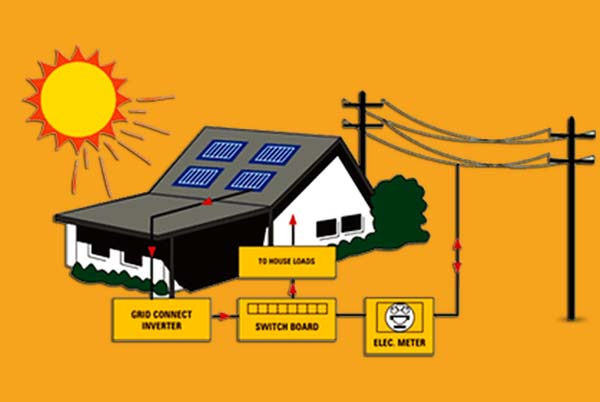- Home
- Energy Efficiency
Energy Efficiency
What is energy efficiency and why it is significant to the society ?
Most of the developing and under developing countries are energy deficient, having limited resources of energy generation, so there is always a need of energy saving. The best way to save the energy using energy efficient equipments consuming less power and getting more output without sacrificing the comfort level. Second best way is to use unlimited renewable energy as a power source. Energy efficiency means consuming less energy to accomplish the same task. The more efficient use of energy throughout the world results in less money spent on energy by home owners, schools, government agencies, businesses, and industries. The money that would have been spent on energy can instead be spent on consumer goods, education, services, and products. When you replace an appliance, such as a refrigerator or clothes washer, or office equipment, such as a computer or printer, with a more energy-efficient model, the new equipment provides the same service, but consume less energy. This saves you money on your energy bill, and reduces the amount of greenhouse gases going into the atmosphere. By increasing use of renewable energy and energy efficient equipments, we can indirectly serve the society by pollution free environment. That will ultimately benefit to our forthcoming generation.
Why more energy efficient UPS is desirable ?
Efficiency of the Inverter/ UPS can be calculated in two ways. One for inverter circuit and other for charging circuit. In most of the Inverter/ UPS, same circuit is being used for charging and inverting mode, so the efficiency of both the circuits will remain same. For an example, suppose the efficiency of the Inverter/ UPS is 80%, it means the battery will charge by 80% energy only and 20% will be lost and in inverting mode. Further, 80% out of 80% will convert into AC power and 20% will be again lost. That means after completing full cycle, only 64% will be usable for providing the power backup. Now, suppose the efficiency of the Inverter/ UPS is 90%, it means the battery will charge by 90% energy only and 10% will be lost and in inverting mode. Further, 90% out of 90% will convert into AC power and 10% will be again lost. That means after completing full cycle, 81% will be available for providing the power backup. From the above example, you can see if the difference in the efficiency of Inverter/ UPS is 10%, the overall difference in output contribute 17% (81% – 64%). That means, if you are choosing 150 AH battery with 80% efficient Inverter/ UPS, you can go for 135 AH battery with 90% efficient Inverter/ UPS, with better power backup. The difference in the cost of 135 AH and 150 AH battery is a direct saving and in this cost difference, higher efficient Inverter/ UPS can be purchased easily with little saving too. Also there is a recurring benefit of the less grid power consumption every month.
Is Star Rating (Energy Efficiency) is applicable on UPS and how it is beneficial to the end user ?
Bureau of Energy Efficiency (BEE, A statuary body under Ministry of Power, Govt. of India) has exclusively made the exhaustive exercise along with the professionals of leading manufacturers and prepared the draft for the star rating of the Home Inverters/UPS. This is expected to release soon after approvals for implementing. After implementation, it will be mandatory for all standard manufacturers to get tested the efficiency of their Inverters/UPS by any Govt. approved test agency and declare the star rating of their each and every model as per the BEE guide lines. This will certainly help end user to choose energy efficient Inverter/UPS before purchasing. And also prevent the manufacturer to release deceptive advertisements.


